« Mother and child with Harlequin | Main | Great Filing Systems of Our Time [and Indeed Our Forefather's] »
November 21, 2008
Perspective
Tricky blighter, Johnny Perspective.
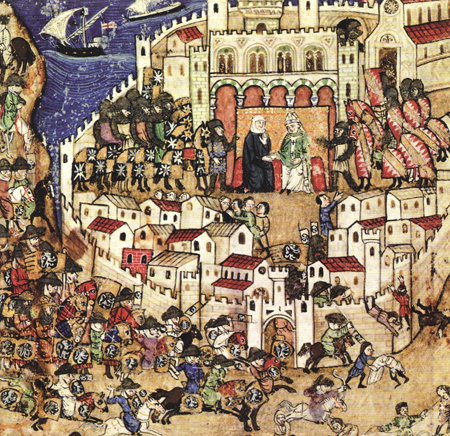
Siege of Tripoli, 1289, unknown artist
It took a while for painters to work out what exactly goes on in the distance.
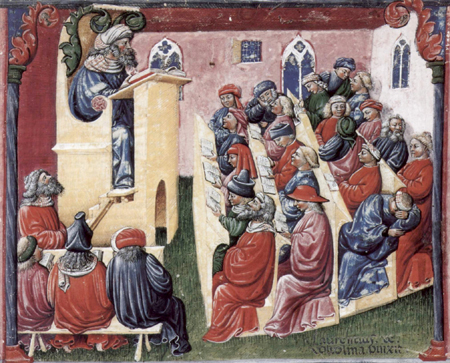
Laurentius de Voltina, late 14th Century
Trying to come to terms with the duality of perspective and the fact that the man standing next to you, who is the same size as you, is now tiny wee. As we can see here:
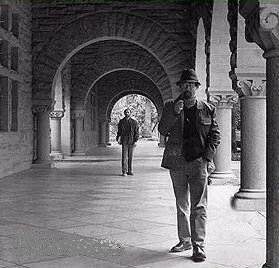
To us, this looks ok, and normal and we make all the right assumptions about the distant man being probably about the same size as the front man
But here is the distant man, cut and pasted, next to the front man:
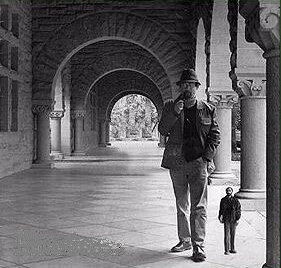
When you’re working on a panel, it’d be really hard to paint the distant man that size, it would feel like the second image – ludicrous. When you just have an empty panel or a blank piece of paper, it’s difficult to believe the measurements – your eye tells you lies, aided and abetted by your mind, which, after all, is only working with recognition and perception not truth.
It wasn’t until the 16th Century that artists got to grips with perspective, your man Raphael is oft cited as the first to truly unlock the puzzle, when, at the age of 25, he painted this:
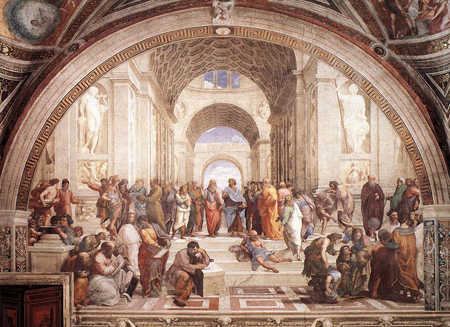
The School of Athens, fresco, 1510 - 1511
It took Father Dougal slightly longer:
Once artists got the hang of perspective, they started to play games with it, adding it’s illusionary powers to their tool box. Lots of perspective effects populate the world of optical and psychological illusion. One of the best is the Ames window, conceived by Professor Adelbert Ames.
Posted by john at November 21, 2008 09:01 PM